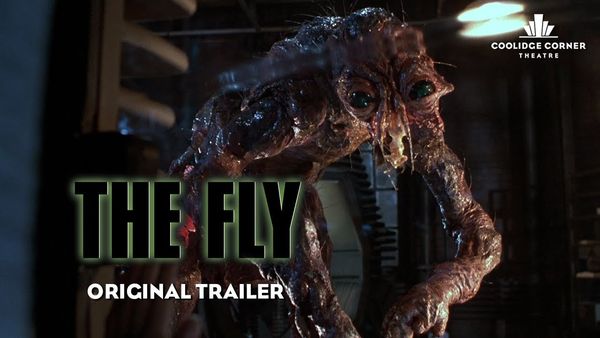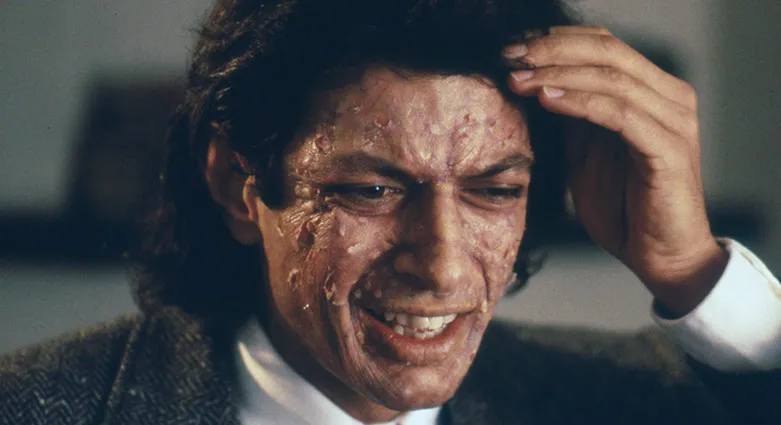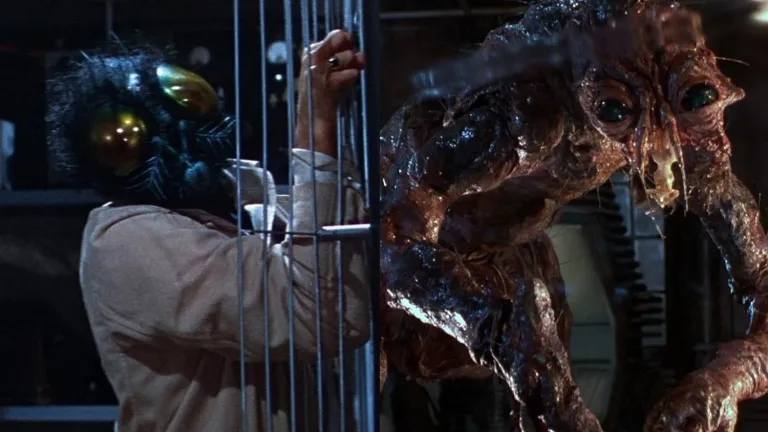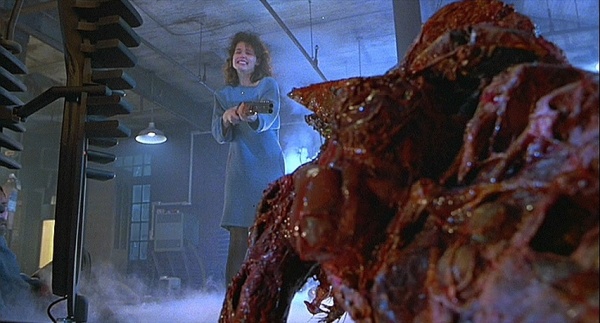The Fly (1986)

“The Fly” (1986), directed by David Cronenberg, is a seminal work in the body horror genre, blending science fiction with intense psychological and physical horror. The film is a remake of the 1958 classic but reimagines the story with a more contemporary and visceral approach, focusing on themes of transformation, identity, and the consequences of scientific hubris.
The film stars Jeff Goldblum as Seth Brundle, a brilliant but eccentric scientist who invents a set of “telepods” capable of teleporting objects from one pod to another. Geena Davis plays Veronica “Ronnie” Quaife, a journalist who becomes romantically involved with Brundle and documents his groundbreaking work. The film’s narrative centers around Brundle’s experimentation with teleportation and the catastrophic results when he inadvertently merges his genetic material with that of a common housefly during a teleportation experiment.
Jeff Goldblum’s performance as Seth Brundle is both captivating and harrowing. He effectively portrays Brundle’s transformation from an ambitious and confident scientist to a grotesque and tragic figure. Goldblum’s portrayal is marked by a gradual physical and psychological deterioration that becomes increasingly horrifying as the film progresses. His nuanced performance captures the agony and horror of Brundle’s metamorphosis, making the character’s plight deeply affecting.

Geena Davis provides a strong and empathetic performance as Ronnie Quaife, whose relationship with Brundle adds emotional depth to the story. Her character’s love and concern for Brundle create a poignant counterpoint to the escalating horror, highlighting the human element amidst the grotesque transformation. Davis and Goldblum’s chemistry is palpable, adding an intimate and tragic dimension to the film.
Cronenberg’s direction and visual style are integral to the film’s impact. “The Fly” is renowned for its groundbreaking special effects and makeup, which vividly depict Brundle’s gradual transformation into a hybrid creature known as “Brundlefly.” The practical effects, created by Chris Walas and his team, are visceral and unsettling, making the physical changes both believable and terrifying. The transformation scenes are graphic and intense, showcasing Cronenberg’s mastery of body horror.

The film’s thematic exploration of transformation and decay extends beyond the physical to the psychological and emotional realms. Brundle’s descent into madness and desperation mirrors his physical degeneration, raising questions about identity, humanity, and the limits of scientific experimentation. Cronenberg’s film delves into the darker aspects of scientific ambition and the unforeseen consequences of tampering with nature.
“The Fly” also explores the dynamics of human relationships in the face of extreme circumstances. Ronnie’s struggle to support and save Brundle despite his horrifying transformation adds a layer of tragedy and emotional resonance. The film examines the impact of Brundle’s transformation on their relationship, highlighting themes of love, loss, and the inevitability of change.

Howard Shore’s haunting and atmospheric score complements the film’s dark and unsettling tone, enhancing the sense of dread and melancholy that pervades the story. The music underscores the emotional and psychological turmoil experienced by the characters, contributing to the film’s overall impact.
Upon its release, “The Fly” received critical acclaim for its innovative special effects, compelling performances, and Cronenberg’s distinctive direction. The film was a commercial success and has since become a cult classic, regarded as one of the best entries in the body horror genre and one of Cronenberg’s finest works.
In summary, “The Fly” (1986) is a masterful blend of science fiction and horror, driven by Jeff Goldblum’s remarkable performance and David Cronenberg’s visionary direction. Its exploration of transformation, identity, and the perils of scientific overreach, combined with its groundbreaking visual effects, make it a powerful and enduring film. “The Fly” remains a poignant and disturbing examination of the human condition, reflecting the complexities and horrors that lie beneath the surface of scientific advancement.